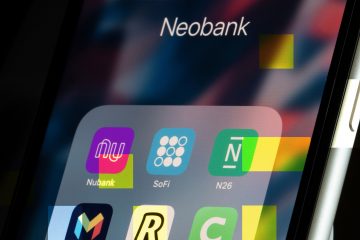Cryptographic cryptocurrencies such as Bitcoin, Litecoin, and others have reached a total capitalization of over USD 5 billion. Furthermore, various applications which run on top of the underlying blockchain technology are being developed for diverse uses. Blockchain has become the most popular buzzword in the tech industry.
Many companies and experts claim that blockchain will revolutionize our daily lives and make things more transparent. But, how does it work? What can it do for your business? And what about smart contracts? Read our blog on the topic and answer all of these questions by yourself.

What is a Smart Contract in Blockchains and how does it work?
Smart Contract:
Smart contracts are the backbone of blockchain technology. They are the digital agreements that are executed automatically and transparently by a computer network, rather than requiring human intervention.
Smart contracts are self-executing and self-enforcing agreements in the form of lines of code that execute when specific conditions are met. They can be used to automate processes or create new financial products.

How do Smart Contracts work?
A smart contract is essentially a computer program that runs on a decentralized network. The terms of an agreement are coded into the program and stored on a shared ledger that all parties have access to. When certain conditions are met, the smart contract executes itself automatically.
For example, imagine that if you want to hire someone for your company, you can set up a smart contract with them such that they will receive payment once they complete their work as agreed upon in their contract with you. This makes it easier for both parties because there is no need to rely on an intermediary like an escrow agent or lawyer who charges fees for their services.

Benefits of Smart Contracts
Smart contracts are self-executing digital contracts stored on the blockchain. The code is designed to execute an action when a condition is met.
- Security – Smart Contracts are secure because they run on a distributed network with no single point of failure.
- Speed – Smart Contracts can process transactions quickly since there is no third party involved in the exchange.
- Cost-Effective – Costs associated with using traditional financial institutions such as banks and lawyers can be reduced significantly with smart contracts. Smart contracts have many potential benefits over traditional paper-based contracts, including:
- Contracts: Smart contracts can be used to replace traditional legal agreements with self-executing code that is stored on a blockchain. This code can be designed to execute any number of actions, including sending funds or data when certain conditions are met.
- Record keeping: Smart contracts can operate as immutable records of transactions between parties or organizations. This allows them to be used in legal cases and disputes without requiring additional evidence from either party.
Blockchain Implementation of Smart Contracts
The aim of a smart contract is to provide security superior to traditional contract law and to reduce other transaction costs associated with contracting. Smart contracts were first proposed by Nick Szabo in 1994 and have been implemented in several programming languages since then.
In blockchain technology, smart contracts are implemented as computer protocols that facilitate, verify, or enforce the negotiation or performance of a contract. The aim of a smart contract is to provide security superior to traditional contract law and to reduce other transaction costs associated with contracting.

What is Blockchain?
Blockchain is a digital ledger of transactions that are grouped into blocks and stored in a decentralized manner. The data is distributed and not stored in any single location, which means it cannot be altered without modifying the entire chain.
Blockchain was invented by Satoshi Nakamoto as the underlying technology behind bitcoin. It’s also been adopted as a way to store and verify information in other areas beyond currency, including healthcare records and even real estate.
A blockchain is essentially a database running on multiple servers that stores data in blocks that are linked together chronologically. Each block contains a hash pointer as well as a timestamp and transaction data.
The hash pointer acts like a unique identifier for each block, linking it to the previous block in the chain on which it was built. These pointers create an unbroken chain of blocks going all the way back to the first transaction ever made on the network (and thus its name).
Why we don’t need to be afraid of Blockchain?
Since the emergence of blockchain technology, there are many opinions about its advantages and disadvantages. Some people believe that blockchain is a kind of bubble; some people think that blockchain is just hype; some people believe that blockchain is an over-promising high tech solution for global problems; some people think that blockchain is not suitable for business application; some people think that blockchain will change our lives completely, etc.
Blockchain technology has been around since 2009 and it has evolved over time. At that time, only enthusiasts were interested in this new technology, but today many large companies are already using this technology to improve their businesses.
What are the challenges and future trends?
Blockchain technology has been gaining a lot of attention in recent years, and it’s easy to see why. It has the potential to completely change how we do business. However, there are some challenges that need to be addressed before blockchain can go mainstream.
Here are some of the biggest challenges facing blockchain implementation:
Scalability
Blockchain is great at storing information about transactions, but it takes time for a new block on the chain to be created, verified and added to the existing chain. This can lead to delays in transaction processing times, which makes it difficult for blockchain implementations to scale up to handle transaction volumes in real-time settings such as stock trades and supply chain management.

Privacy and security concerns
The transparency of blockchain makes it easy for everyone involved in an exchange or transaction to see what everyone else is doing at any given time — and this can pose a problem when sensitive information is involved. For example, if you have an insurance claim on your policy but don’t want anyone else knowing about it just yet because you haven’t been able to collect all your medical documents yet, then it might not be ideal if everyone in your neighborhood knows that you’ve had an accident.
Lack of standards and interoperability
Blockchain protocols are not interoperable with each other, so it’s not easy for applications built on different platforms to communicate with each other seamlessly. This means that if an application wants to use a smart contract, it has to be built specifically for that blockchain protocol — otherwise it won’t work properly or at all. In addition, there are currently no industry standards governing how smart contracts should be written or implemented within an organization’s workflow. This creates difficulties when trying to integrate existing systems into blockchain networks because legacy systems must be adapted for compatibility with new platforms and protocols.

Future trends of Blockchain implementation of Smart Contracts
A smart contract works better than a traditional contract because it is built on the blockchain and removes all middlemen from it. Furthermore, smart contracts simplify, speed up, and lower the costs of transactions. The following are some examples of smart contract applications: voting, healthcare, supply chain management, and financial services. In essence, blockchain is a distributed ledger that is not subject to alteration by anyone. It is a permanent ledger that keeps track of all transactions permanently and publically. This technology can be implemented in a real-world setting by using smart contracts.



